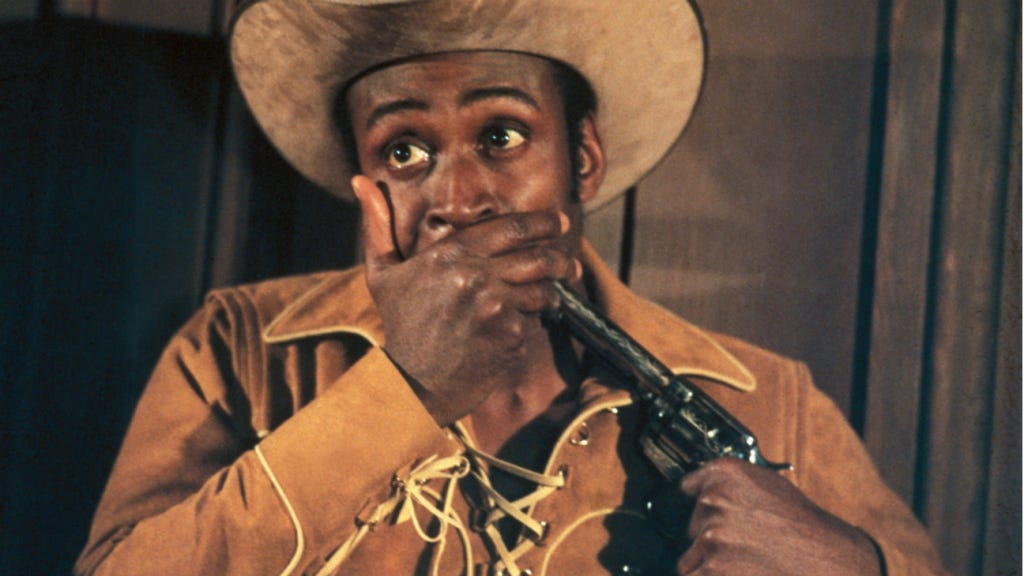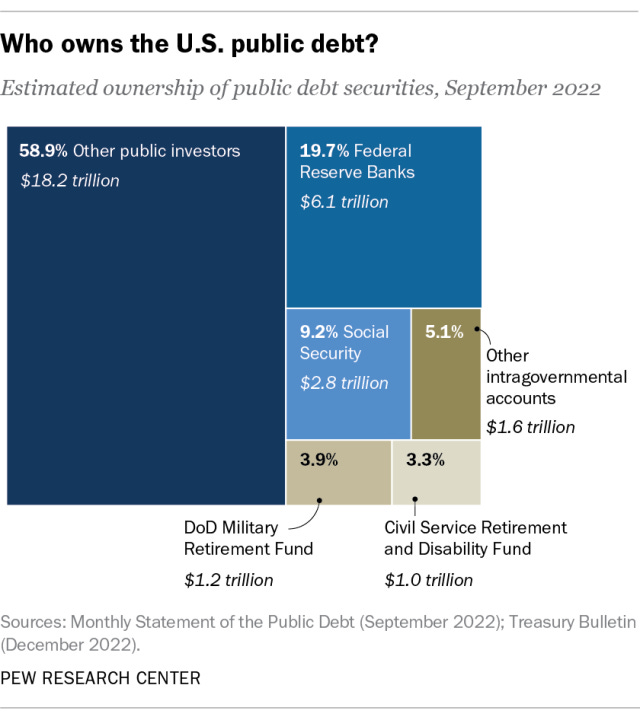Republicans Have Turned Their Base Into Unwitting Hostages
How manufactured crises convince the GOP base to act against their own self-interest

The other day, I was talking to someone about the film Blazing Saddles, Mel Brooks’s satire from the 1970s. After reflecting on various parts of the film, we agreed that, although the movie is genuinely hilarious, its brand of comedy would have a difficult time being greenlit today. Indeed, as daring as the final product was when it premiered, one scene was too racy, even for Mel Brooks.
While the film has numerous side-splitting moments, one part has been on my mind of late. Sheriff Bart, played by Cleavon Little, gets himself out of a life-threatening situation by putting his revolver to his head and taking himself hostage. (Since the scene contains some very offensive language, I decided not to include the clip, but it’s easy to find on YouTube.)
The scene in question is way beyond politically incorrect, but I admit it’s hilarious. That said, because it depicts someone essentially taking themselves hostage, I never anticipated seeing something like it in real life.
Leave it to Republicans to prove me wrong.
Rooting against yourself as a strategy
A few days ago, I was enjoying a glass of wine at a local wine bar. Several of the establishment’s regulars know about my former life working in New York, so eventually, the subject of the debt ceiling entered the conversation. “I think we should just default,” a gentleman a few chairs away from me opined, looking in my direction.
He explained his rationale, arguing that the default of the world’s largest economy was similar to a missed car payment or a late mortgage payment. I countered by saying that, unlike the government, if a family fails to pay their mortgage or credit card debt, they are the only people who suffer, not the entire neighborhood.
Conversely, the impact of a U.S. default is far-reaching, not just to the global economy but to him personally. I then enumerated how a U.S. bankruptcy could hurt him and his family. After taking a moment to digest my comment, he responded, “Oh. I didn’t know all that.”
Most of the people I’ve met since moving back to the South identify as Republicans. They range from old-school conservatives to election-denying true believers.
While we probably disagree politically, most of the Republicans I come in contact with are pretty ordinary. That said, they tend to be stunningly ill-informed. That is not to say they don’t have opinions in abundance. But somewhere along the way, they’ve been convinced that beliefs are the same thing as facts.
That’s why I wasn’t surprised by the guy at the wine bar’s comment or his reaction to new information. Most Republicans I encounter tend to absorb a steady diet of misinformation posing as news. The result is an unserious way of thinking about very serious issues.
I suspect this is why, according to recent polling, 65% of Republicans believe increasing the debt ceiling should be contingent on spending cuts, even if the country defaults. And yet, the same poll found that should default occur, 73% of Republicans would blame Joe Biden. Most Republicans view defaulting on our country’s debts as another opportunity to “own the libs.”
There’s something about this calculus that I find puzzling. Namely, the lack of interest from the GOP base in knowing to whom the debt they’re so eager to renege on is owed.
(Spoiler: most of the money is owed to us)
None of the politicians willing to throw the country into default see fit to tell their base most of the government’s debt is owed, not to China or some other boogeyman, but to virtually every American. As of the end of 2022, U.S. creditors held 70% of the government’s outstanding debt, with the remaining 30% in the hands of foreign creditors.
While the Federal Reserve System is the country’s largest creditor, holding nearly 20% of all U.S. debt, almost $7 trillion is owed to various entities within the United States government, including Social Security and Medicare, according to Pew Research Center:
While U.S. government debt is perhaps the most widely held class of security in the world, 21.8% of the public debt, or $6.87 trillion, is owned by another arm of the federal government itself. That includes Medicare; specialized trust funds, such as those for highways and bank deposit insurance; and civil service and military retirement programs. But the biggest chunk of those “intragovernmental holdings” belongs to Social Security. As of the end of January [2023], the program’s retirement and disability trust funds together held more than $2.8 trillion in special non-traded Treasury securities, or 9% of the total debt. (For many years, Social Security collected more in payroll taxes than it paid out in benefits; the surplus was required by law to be invested in Treasuries. That made Social Security, for a time, the federal government’s single biggest creditor.)
Even though we dodged economic calamity this time, the state of play on the right is problematic. With Republican factions like the Freedom Caucus (who were never going to vote for a negotiated solution anyway) more interested in bomb-throwing for sound bites than preventing a global calamity, sooner or later, our luck will run out.
Because that’s all most Republicans will ever hear, they’ll gladly take us hostage, not knowing they’re also coming along for the ride.
If you enjoy and want to support my writing, please consider signing up as a paid subscriber. You’ll receive early access to all my posts and subscriber-only podcast. You’ll also get invited to occasional Zoom events and paid-subscriber-only chats.







Several year agp O saw Ted Coppell was interviewed on Fox. The question was why he disliked Fox News. His answer was to the point and exactly what you are saying here. His response was, " It is not that I dislike Fox News. It is problematic to me that the information on this network is not based on facts but on ideology ".